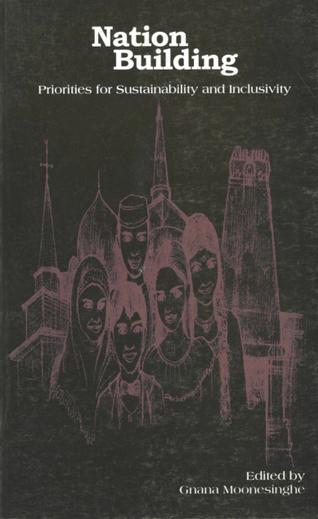Ilankai Tamil Sangam30th Year on the Web Association of Tamils of Sri Lanka in the USA |
|||
 Home Home Archives Archives |
Sri Lanka's Post-war Dilemmaby V. Suryararayan, The Hindu, Chennai, July 15, 2011
A look at the problems of reconstruction and harmonisation Sri Lanka is grappling with in the aftermath of the “fourth Eelam war”
Although, as Moonasinghe says, the focus is on “post-war dilemma”, it is rather strange that neither the editor nor the contributors have chosen to examine how the war, which is reported to have taken a toll of nearly 40,000 lives, was won. The omission is all the more glaring, given the recent media reports/footage of various international agencies suggesting serious human rights violations — particularly in the later stages of the war — and refuting Colombo's assertion of “zero civilian casualties.” Political Profile The 21 essays in the volume are arranged in six parts. Moonasinghe provides a synoptic political profile of Sri Lanka since independence, while Susil Sirivardana identifies the fault-lines in the nation-building experiment. The unique problems faced by the two minority groups, Moslems and Indian Tamils; the specific functions of the media and public service; the inter-relationship among education, economic development and nation building; and the role played by diplomacy in Sri Lanka's image-building are among the subjects analysed in the 10 essays under the overall theme of majority fears and minority aspirations. Then follows a discussion on the different constitutional frameworks. The three Constitutions under which the political system worked and the abortive attempts to introduce a fourth constitution are covered in detail. The functioning of the Ministry of Constitutional Affairs and National Integration comes in for close scrutiny. Its effectiveness and the issues related to its structure are highlighted in two essays. The need to promote civic consciousness, ensure that ethical values governed individual behaviour, and formulate policies that aimed at sustainable development is impressed upon in the three essays in the sixth part. Bilateral Ties Of particular interest to South Asian scholars is the contribution by N. Sathiya Moorthy, an Indian analyst who regularly writes on Sri Lanka. He has placed post-war national building in Sri Lanka in the wider context of that country's bilateral relations with India, touching upon the crucial Tamil Nadu factor. I wish Sathiya Moorthy had taken an overview of India's policy towards Sri Lanka since Independence. In its relations with Sri Lanka, especially after the escalation of the ethnic conflict, New Delhi has been guided by the principle that any solution has to be within the unity and territorial integrity of Sri Lanka and that such a solution, if it was to be successful, should be based on a broad Sinhala consensus and Tamil participation. It also firmly believed that the aspirations of the minority groups can be fulfilled only if the political system provided for substantive federalism in a unitary set-up. During 1983-1991, India was determined not to let Colombo impose a solution through the military. There were of course some distortions along the way which not only strained bilateral relations but also caused serious damage to the cause of the Tamils. On the crucial Tamil Nadu factor, it must be said that in the case of the Sirima-Shastri Pact of 1964 and the delimitation of the maritime boundary in 1974 and 1976, Tamil Nadu's interests were compromised by New Delhi. The greatness of a nation, Gandhiji said, consists in how well it treats its minorities. Equally noble are the sentiments expressed by Paul Starr in this quote reproduced in the book: “A great nation cannot long be governed by wishful and simplistic thinking, denial, obfuscation, and deceit. Costs mount, grievances accumulate, and there comes a reckoning.” The sooner the ruling elite of Sri Lanka imbibe the message in these statements the better it will be for that country and its people across the ethnic divide. |
||
|
|||
 This collection of essays, contributed mostly by eminent social scientists, looks at the problems of reconstruction and harmonisation Sri Lanka is grappling with in the aftermath of what has come to be referred to as the “fourth Eelam war” that saw the liquidation of the Liberation Tigers of Tamil Eelam (LTTE). In the words of the editor of the volume, Gnana Moonasinghe, a scholar of repute, it is a “response to the post-war dilemma of how best to bring together the different communities and build a nation on strong foundations, of inclusivity, fairness, justice, equality and contentment for all.”
This collection of essays, contributed mostly by eminent social scientists, looks at the problems of reconstruction and harmonisation Sri Lanka is grappling with in the aftermath of what has come to be referred to as the “fourth Eelam war” that saw the liquidation of the Liberation Tigers of Tamil Eelam (LTTE). In the words of the editor of the volume, Gnana Moonasinghe, a scholar of repute, it is a “response to the post-war dilemma of how best to bring together the different communities and build a nation on strong foundations, of inclusivity, fairness, justice, equality and contentment for all.”